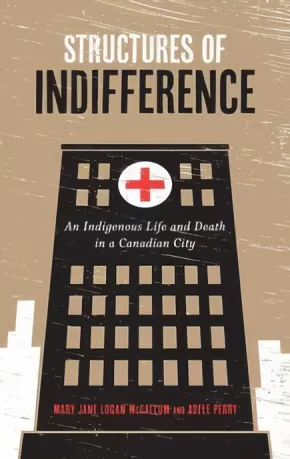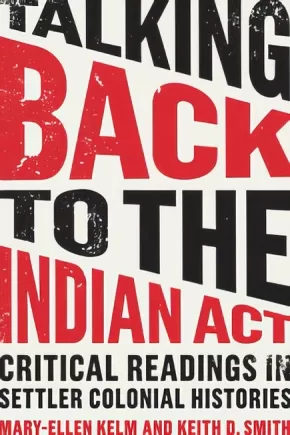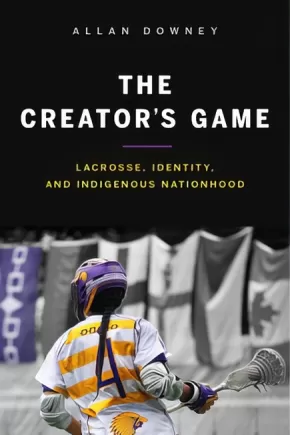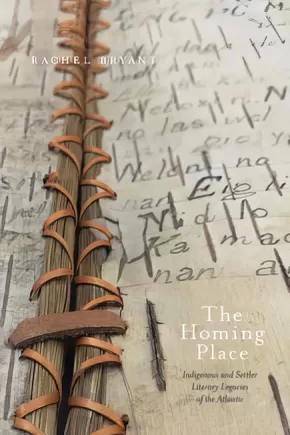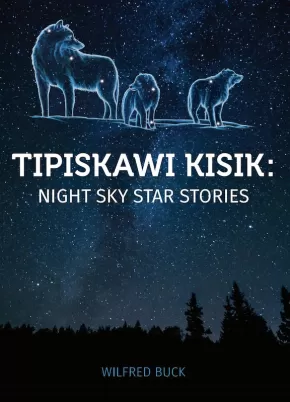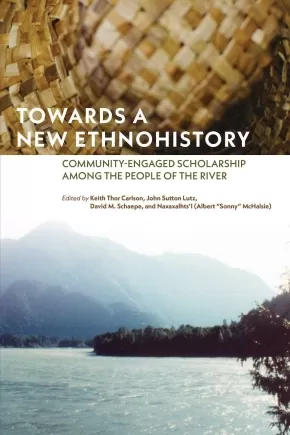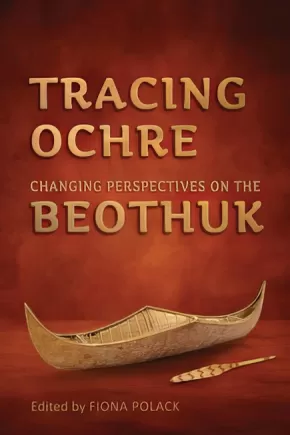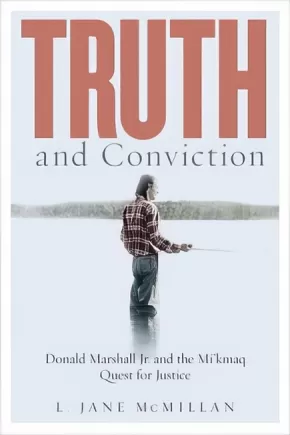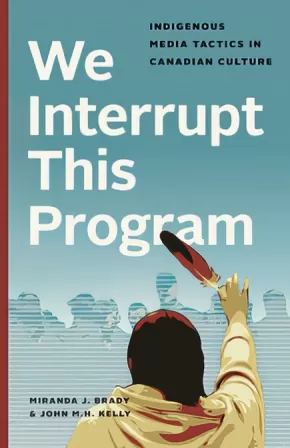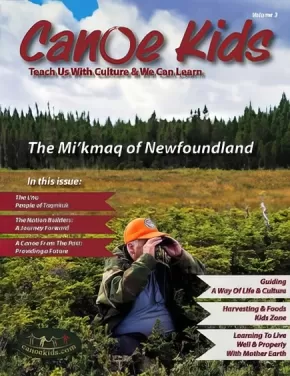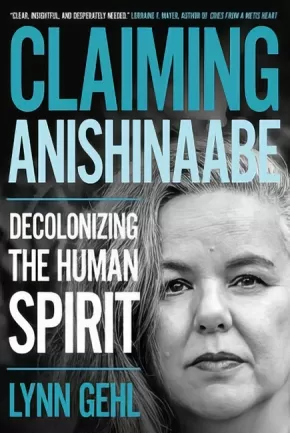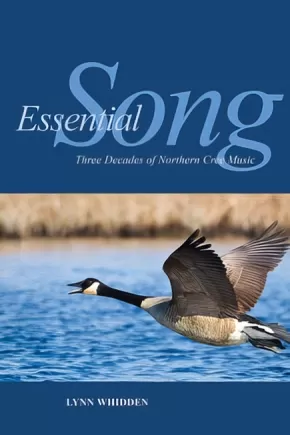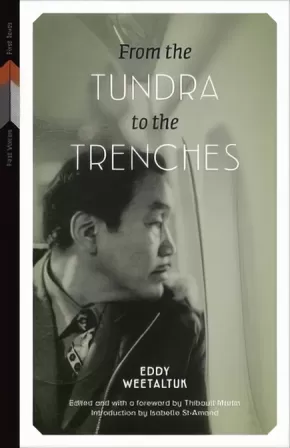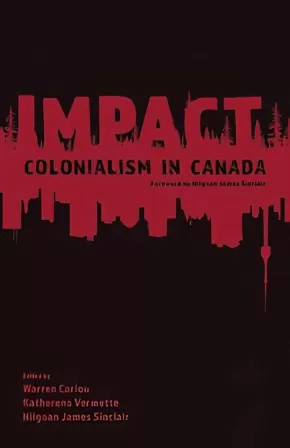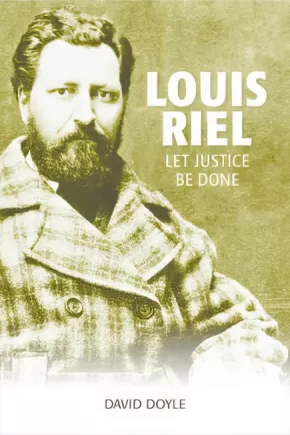
History
226
-
240
of
336 Results;
Sort By
Go To
of 23
Structures of Indifference: An Indigenous Life and Death in a Canadian City
$17.95
Format:
Paperback
Text Content Territories:
Indigenous Canadian; First Nations; Anishinaabeg;
Grade Levels: University/College;
ISBN / Barcode: 9780887558351
Synopsis:
Synopsis:
The tragic consequences of systemic racism.
Structures of Indifference examines an Indigenous life and death in a Canadian city and what it reveals about the ongoing history of colonialism. At the heart of this story is a thirty-four-hour period in September 2008. During that day and a half Brian Sinclair, a middle-aged, non-Status Anishinaabeg resident of Manitoba’s capital city, arrived in the emergency room of the Health Sciences Centre, Winnipeg’s major downtown hospital, was left untreated and unattended to, and ultimately died from an easily treatable infection. His death reflects a particular structure of indifference born of and maintained by colonialism.
McCallum and Perry present the ways in which Sinclair, once erased and ignored, came to represent diffuse, yet singular and largely dehumanized ideas about Indigenous people, modernity, and decline in cities. This story tells us about ordinary indigeneity in the city of Winnipeg through Sinclair’s experience and restores the complex humanity denied him in his interactions with Canadian health and legal systems, both before and after his death.
Structures of Indifference completes the story left untold by the inquiry into Sinclair’s death, the 2014 report of which omitted any consideration of underlying factors, including racism and systemic discrimination.
Contents
Introduction: Thirty-Four Hours
Ch. 1: The City
Ch. 2: The Hospital
Ch. 3: Brian Sinclair
Conclusion
Reviews
“You can’t really sugarcoat the colonial genealogy that killed Brian Sinclair. Structures of Indifference is a necessary book. It offers a short, direct framing of the death of Brian Sinclair as a clear instance of racism, a racism that is the basis of Canadian settler colonialism.” – Sherene H. Razack, UCLA, author of Dying from Improvement: Inquests and Inquiries into Indigenous Deaths in Custody
Additional Information
192 pages | 4.25" x 7.12"
Talking Back to the Indian Act: Critical Readings in Settler Colonial Histories
$39.95
Format:
Paperback
Text Content Territories:
Indigenous Canadian;
ISBN / Barcode: 9781487587352
Synopsis:
Synopsis:
Talking Back to the Indian Act is a comprehensive "how-to" guide for engaging with primary source documents. The intent of the book is to encourage readers to develop the skills necessary to converse with primary sources in more refined and profound ways. As a piece of legislation that is central to Canada’s relationship with Indigenous peoples and communities, and one that has undergone many amendments, the Indian Act is uniquely positioned to act as a vehicle for this kind of focused reading.
Through an analysis of thirty-five sources pertaining to the Indian Act—addressing governance, gender, enfranchisement, and land—the authors provide readers with a much better understanding of this pivotal piece of legislation, as well as insight into the dynamics involved in its creation and maintenance.
Educator Information
Recommended in the Canadian Indigenous Books for Schools 2019-2020 resource list for grades 11 and 12 for English Language Arts, Law, and Social Studies.
Additional Information
248 pages | 6.00" x 9.00"
The Creator's Game: Lacrosse, Identity, and Indigenous Nationhood
$35.95
Format:
Paperback
Text Content Territories:
Indigenous Canadian;
Grade Levels: University/College;
ISBN / Barcode: 9780774836036
Synopsis:
Synopsis:
Lacrosse has been a central element of Indigenous cultures for centuries, but once non-Indigenous players entered the sport, it became a site of appropriation – then reclamation – of Indigenous identities. The Creator’s Game focuses on the history of lacrosse in Indigenous communities from the 1860s to the 1990s, exploring Indigenous-non-Indigenous relations and Indigenous identity formation. While the game was being appropriated in the process of constructing a new identity for the nation-state of Canada, it was also being used by Indigenous peoples to resist residential school experiences, initiate pan-Indigenous political mobilization, and articulate Indigenous sovereignty. This engaging and innovative book provides a unique view of Indigenous self-determination and nationhood in the face of settler-colonialism.
Additional Information
364 pages | 6.00" x 9.00" | 56 photos
The Homing Place: Indigenous and Settler Literary Legacies of the Atlantic
$29.99
Format:
Paperback
Text Content Territories:
Indigenous American; Indigenous Canadian;
Grade Levels: University/College;
ISBN / Barcode: 9781771122870
Synopsis:
Synopsis:
Can literary criticism help transform entrenched Settler Canadian understandings of history and place? How are nationalist historiographies, insular regionalisms, established knowledge systems, state borders, and narrow definitions continuing to hinder the transfer of information across epistemological divides in the twenty-first century? What might nation-to-nation literary relations look like? Through readings of a wide range of northeastern texts – including Puritan captivity narratives, Wabanaki wampum belts, and contemporary Innu poetry – Rachel Bryant explores how colonized and Indigenous environments occupy the same given geographical coordinates even while existing in distinct epistemological worlds. Her analyses call for a vital and unprecedented process of listening to the stories that Indigenous peoples have been telling about this continent for centuries. At the same time, she performs this process herself, creating a model for listening and for incorporating those stories throughout.
This commitment to listening is analogous to homing – the sophisticated skill that turtles, insects, lobsters, birds, and countless other beings use to return to sites of familiarity. Bryant adopts the homing process as a reading strategy that continuously seeks to transcend the distortions and distractions that were intentionally built into Settler Canadian culture across centuries.
Reviews
"The Homing Place enacts and advocates for a paradigm shift in ‘literary relations’ in North America, revealing the ’invisible wall ’ in colonial perceptions that may at first seem as impermeable as the nation-state borders that divide the continent. Yet just as Indigenous people and homelands have always traversed those borders, so may our readings transcend that wall. Rachel Bryant foregrounds and leads us to acknowledge the active ways our embodied minds evade or engage Indigenous contexts and communities, producing greater awareness of the impacts of our activities as readers and writers, Native people and settlers, those who make policy, and those who are most impacted by it.”— Lisa Brooks
“Bryant’s excavation of US and Canadian exceptionalisms could not be timelier. She shows how Anglo-Atlantic writing has built a ‘system of self-protection’ that has sought to contain Indigenous geographies and indeed Indigenous agency. At the same time, she shows how First Nations have always effectively written back against this system. This book shines new light on settler colonialism and Indigenous resurgence, historic and contemporary, through sharp analyses of some influential but lesser-discussed writers. It belongs on the shelf of every scholar in Indigenous Studies, Canadian Studies, American Studies, Atlantic and Maritime Studies, Material Culture Studies, Cultural Geography, and Literary Criticism, for it creates fresh new dialogues among all of these fields and interests.”— Siobhan Senier
"If you are interested in Indigenous affairs, the history of how the eastern tribes came to be in such dire straits today, and how literature has reflected these changes – and even attempts to embrace and effect change for the better – then The Homing Place will certainly appeal to you."— The Miramichi Reader
Awards
- 2017 Writers’ Federation of New Brunswick Book Award for Non-Fiction winner
- 2018 AUP Book Jacket and Journal Show Selected Entry joint winner
Additional Information
256 pages | 6.00" x 9.00"
Tipiskawi Kisik: Night Sky Star Stories
$15.00
Format:
Paperback
Text Content Territories:
Indigenous Canadian; First Nations; Cree (Nehiyawak);
ISBN / Barcode: 9781927849460
Synopsis:
Synopsis:
Like the night sky above, Tipiskawi Kisik holds a myriad of tales rooted in an Ininew (Cree) perspective. An exploration of stars and constellations—and their associated mythologies—will greet you with age-old knowledge held by Indigenous people prior to European contact. Through Wilfred Buck’s creative, spiritual, and intelligent understanding of the stars, it will be easy to imagine yourself flying inside the Milky Way with Niska (the Goose) or chasing Mista Muskwa (the Great Bear), just like Tepakoop Pinesisuk (the Seven Birds). Above all, these stories can be passed on to the next generation, so they will know of the rich history, science practices, and culture of the Ininew people.
Additional Information
This is a collection of short stories (approximately 25 pages long) with supporting artwork/illustrations. While not aimed at young readers in terms of reading level, this book would support educators in their teaching of Indigenous astronomy to younger audiences, especially since each short story would work well as a read aloud and includes useful illustrations/diagrams of the night sky.
Towards a New Ethnohistory: Community-Engaged Scholarship among the People of the River
$27.95
Format:
Paperback
Text Content Territories:
Indigenous Canadian; First Nations; Salish; Coast Salish; Sto:lo;
Grade Levels: University/College;
ISBN / Barcode: 9780887558177
Synopsis:
Synopsis:
Towards a New Ethnohistory engages respectfully in cross-cultural dialogue and interdisciplinary methods to co-create with Indigenous people a new, decolonized ethnohistory. This new ethnohistory reflects Indigenous ways of knowing and is a direct response to critiques of scholars who have for too long foisted their own research agendas onto Indigenous communities. Community-engaged scholarship invites members of the Indigenous community themselves to identify the research questions, host the researchers while they conduct the research, and participate meaningfully in the analysis of the researchers’ findings.
The historical research topics chosen by the Stó:lō community leaders and knowledge keepers for the contributors to this collection range from the intimate and personal, to the broad and collective. But what principally distinguishes the analyses is the way settler colonialism is positioned as something that unfolds in sometimes unexpected ways within Stó:lō history, as opposed to the other way around.
This collection presents the best work to come out of the world’s only graduate-level humanities-based ethnohistory fieldschool. The blending of methodologies and approaches from the humanities and social sciences is a model of twenty-first century interdisciplinarity.
Reviews
“At a time when Indigenous sovereignty has come to the fore, this volume sets the ‘gold standard’ for ethical scholarship and provides a roadmap and manifesto for sensible and sensitive decolonization.”– Chris Friday, Professor of History, Western Washington University
“The strength of the collection is its appreciation for and attention to interpreting history with reference to Stó:lō interpretative frames.” – Tyler McCreary, BC Booklook
“In a time when many scholars are looking to decolonize their approaches to research—especially when working with Indigenous communities—this book stands as a clear exemplar of community-engaged research and demonstrates how it can be done well.”– Jennifer Megan Markides, University of Calgary, Qualitative Research in Education
“Exemplifies a new, transdisciplinary approach to ethnohistory, in which the researcher recognizes not only the legacy of settler colonialism in Canada, but also the subjectivity and relativity of their own views and western knowledge as a whole. This new ethnohistory aims to work with the community at all levels of research and form and sustain relationships that last long after fieldwork is conducted. Its hope is to produce scholarship that is cutting edge, complex, accessible and relevant to members of the community.”– Daniel Sims, NICHE
“Settler scholars concerned with disciplinary crises need look no further than this excellent anthology for models of respectful intercommunity engagement, radical methodology and pedagogy, and a paradigm for solidarity work that chooses to develop respectful relationships over moribund agonizing.”– Madeleine Reddon, Canadian Literature
Educator Information
Table of Contents
Introduction
Ch. 1—Kinship Obligations to the Environment
Ch. 2—Relationships
Ch. 3—Crossing Paths
Ch. 4—Stó:lō Ancestral Names, Identity and the Politics of History
Ch. 5—Disturbing the Dead
Ch. 6—Food as a Window into Stó:lō Tradition and Stó:lō-Newcomer Relation
Ch. 7—’Bringing Home all That Has Left’
Ch. 8—Totem Tigers and Salish Sluggers
Ch. 9—’I Was Born a Logger’
Ch. 10—’They Are Always Looking for the Bad Stuff’
Ch. 11—Next Steps in Indigenous Community-Engaged Research
Additional Information
304 pages | 6.00" x 9.00"
Tracing Ochre: Changing Perspectives on the Beothuk
$46.95
Editors:
Format:
Paperback
Text Content Territories:
Indigenous Canadian; First Nations; Beothuk;
Grade Levels: University/College;
ISBN / Barcode: 9781442628427
Synopsis:
Synopsis:
The supposed extinction of the Indigenous Beothuk people of Newfoundland in the early nineteenth century is a foundational moment in Canadian history. Increasingly under scrutiny, non-Indigenous perceptions of the Beothuk have had especially dire and far-reaching ramifications for contemporary Indigenous people in Newfoundland and Labrador.
Tracing Ochre reassesses popular beliefs about the Beothuk. Placing the group in global context, Fiona Polack and a diverse collection of contributors juxtapose the history of the Beothuk with the experiences of other Indigenous peoples outside of Canada, including those living in former British colonies as diverse as Tasmania, South Africa, and the islands of the Caribbean. Featuring contributions of Indigenous and non-Indigenous thinkers from a wide range of scholarly and community backgrounds, Tracing Ochre aims to definitively shift established perceptions of a people who were among the first to confront European colonialism in North America.
Truth and Conviction: Donald Marshall Jr. and the Mi'kmaw Quest for Justice
$34.95
Format:
Hardcover
Text Content Territories:
Indigenous Canadian; First Nations; Mi'kmaq;
Grade Levels: University/College;
ISBN / Barcode: 9780774837484
Synopsis:
Synopsis:
The name “Donald Marshall Jr.” is synonymous with “wrongful conviction” and the fight for Indigenous rights in Canada. In Truth and Conviction, Jane McMillan – Marshall’s former partner, an acclaimed anthropologist, and an original defendant in the Supreme Court’s Marshall decision on Indigenous fishing rights – tells the story of how Marshall’s fight against injustice permeated Canadian legal consciousness and revitalized Indigenous law.
Marshall was destined to assume the role of hereditary chief of Mi’kmaq nation when, in 1971, at the age of seventeen, he was wrongly convicted of murder. He spent more than eleven years in jail before a royal commission exonerated him and exposed the entrenched racism underlying the terrible miscarriage of justice. Four years later, in 1993, he was charged with fishing eels without a licence. With the backing of Mi’kmaq chiefs and the Union of Nova Scotia Indians, he took the case all the way to the Supreme Court to vindicate Indigenous treaty rights in the landmark Marshall decision.
Marshall was only fifty-five when he died in 2009. His legacy lives on as Mi’kmaq continue to assert their rights and build justice programs grounded in customary laws and practices, key steps in the path to self-determination and reconciliation.
This book will appeal to anyone interested in the Donald Marshall story, Indigenous peoples encounters with the law, and social justice issues.
Reviews
"Jane McMillian has written an admirable, engaging, and formidable book about an Indigenous man’s quest for justice against the systemic injustices of Canada." -
Additional Information
288 pages | 6.00" x 9.00" | 10 black and white photographs
We Interrupt This Program: Indigenous Media Tactics in Canadian Culture
$29.95
Format:
Paperback
Text Content Territories:
Indigenous Canadian;
Grade Levels: University/College;
ISBN / Barcode: 9780774835091
Synopsis:
Synopsis:
We Interrupt This Program tells the story of how Indigenous people are using media tactics in the realms of art, film, television, and journalism to rewrite Canada’s national narratives from Indigenous perspectives.
Miranda Brady and John Kelly showcase the diversity of these interventions by offering personal accounts and reflections on key moments – witnessing survivor testimonies at the Truth and Reconciliation Commission, attending the opening night of the ImagineNative Film + Media Festival, and discussing representations of Indigenous people with artists such as Kent Monkman and Dana Claxton and with CBC journalist Duncan McCue. These scene-setting moments bring to life their argument that media tactics, as articulations of Indigenous sovereignty, have the power not only to effect change from within Canadian institutions and through established mediums but also to spark new forms of political and cultural expression in Indigenous communities and among Indigenous youth.
Theoretically sophisticated and eminently readable, We Interrupt This Program reveals how seemingly unrelated acts by Indigenous activists across Canada are decolonizing our cultural institutions from within, one intervention at a time.
This book will appeal to wide spectrum of readers – from students and scholars in communications and media studies to those with a general interest in Canadian art, culture, history, journalism, anthropology, and Indigenous studies.
Reviews
"...the book chronicles the breadth of media interventions employed by Aboriginal media creators, foregrounding Indigenous worldviews, agency and resilience while challenging colonial myths. It is a vital resource for anyone seeking to understand Indigenous cultural expression in Canada in the digital age." — Brad Clark, Journalism and Broadcast Media Studies at Mount Royal University, Canadin Journal of Native Studies, Vol. 38, No. 1, January 2018
"[We Interrupt this Program] provides an analytical perspective to help readers reflect on what types of new interruptions may be brewing – or to plan the interventions themselves." — Greg Macdougall, Briarpatch Magazine, June 2018
Educator Information
Table of Contents
Introduction: Indigenous Media Tactics
1 Media Practices and Subversions: Survivor Testimonials in the Truth and Reconciliation Commission
2 IsumaTV’s “Testimony by Isuma”: Online Expressions of Inuit Culture and Assimilation
3 Redfacing, Remediation, and Other Indigenous ArtTactics: Challenging Cultural Institutions
4 imagineNATIVE as Industry Intervention: Supporting and Growing Indigenous Media Makers
5 Reporting News in Indigenous Communities: A Conversation with Journalist Duncan McCue on Respect and Relationality
Conclusion: Media Tactics Old and New
Notes; Works Cited; Index
Additional Information
220 pages | 5.50" x 8.50" | 14 B&W Photos
Canoe Kids Volume 3: The Mi'kmaq of Newfoundland
$22.95
Format:
Paperback
Text Content Territories:
Indigenous Canadian; First Nations; Mi'kmaq;
ISBN / Barcode: 9781926852102
Synopsis:
Synopsis:
Canoe Kids Vol. 3 The Mi'kmaq of Newfoundland (Ktaqamkuk) is the third issue of a 24 edition series designed as family books for kids all ages. This eight to ten year project will see the Canoe Kids Team embed with 24 Peoples. The mandate for the full-colour book (150+ full colour high res photographs) is Exploring Indigenous Cultures through Authentic Indigenous Voices. The publication balances culture, equity and the environment in a beautiful mix that reminds the reader of the pictorial quality of National Geographic with a more in depth editorial content.
This third issue (in a series of 24) focuses on the Mi'kmaq of the Newfoundland and north Atlantic coast. In 150 pages the reader is introduced to the Mi'kmaq People who kindly assisted the Canoe Kids staff by allowing access to their traditional territory. Canoe Kids acknowledges the generosity of the Council of Flat Bay and Conn River.
Educator Information
Each edition follows a common theme and features:
1: Compelling and beautiful pictorials that draw you into the stories and place of the featured community
2: The story of the vessel used by the featured Peoples
3: Art and Food
4: A Kids Zone
5: Resources for kids, parents and educators
6: Stories by and of the featured Peoples in each edition
7: Extraordinary pictures of the lives, land and waters of the featured Peoples
The materials are equal parts cultural and environmental. The latter is a natural offshoot of the former as Indigenous cultures are wrapped around and through the lands and water and sky both spiritually and from a harvesting and gathering perspective. Indigenous Peoples have long been the caretakers of Mother Earth and we can all learn from these experts whose message is perhaps more relevant today than ever.
Indigenous communities have always included the little ones in their circles and talk and teach to them in the same way they talk and teach to young adults and adults. Canoe Kids decided to follow that inclusive way of life for the layout of each book. Rather than create editions for different age groups, Canoe Kids decided to have one book for all ages.
K through 3 use Canoe Kids to read beautiful and ancient stories. There is beautiful original art to explore and a Kids Zone with puzzles, word searches, colouring, cutouts and more. Mid grades use the materials to study the culture, food and wildlife of the featured cultures. Grades 8 through 12 use stories that are more in depth from Dr. David Suzuki about the environment and there are discussion articles about living well and properly with Mother Nature as well as articles about the history and geography of the featured People.
Additional Information
150 pages | 8.50" x 11.00"
Claiming Anishinaabe: Decolonizing the Human Spirit
$24.95
Format:
Paperback
Text Content Territories:
Indigenous Canadian; First Nations; Anishinaabeg;
Grade Levels: 12; University/College;
ISBN / Barcode: 9780889774919
Synopsis:
Synopsis:
Denied her Indigenous status, Lynn Gehl has been fighting her entire life to reclaim mino-pimadiziwin--the good life. Exploring Anishinaabeg philosophy and Anishinaabeg conceptions of truth, Gehl shows how she came to locate her spirit and decolonize her identity, thereby becoming, in her words, "fully human." Gehl also provides a harsh critique of Canada and takes on important anti-colonial battles, including sex discrimination in the Indian Act and the destruction of sacred places.
Reviews
Gehl is at the cutting edge with her concepts and ideas... She is on a journey and documents it well. — Lorelei Anne Lambert, author of Research for Indigenous Survival
Clear, insightful, and desperately needed... — Lorraine F. Mayer, author of Cries from a Métis Heart
The discussion of the heart and mind knowledge, as well as the discussion on the Anishinaabeg Clan System of Governance, [are] major contributions to the research. — Marlyn Bennett, co-editor of Pushing the Margins
"Throughout Claiming Anishinaabe, the conversation remains rooted in the destructive effects of oppressive power on the human spirit, and an insistence that both knowledge and spirituality are key in reclaiming one’s sense of self." — Quill & Quire
Educator Information
This book would be useful for the following subject areas or courses: Indigenous Studies, Canadian History (Post-Confederation), Social Science, Autobiography/Biography Studies, Spirituality, and Law.
Additional Information
176 pages | 5.50" x 8.50" | Includes line drawings
Essential Song: Three Decades of Northern Cree Music
$39.99
Format:
Paperback
Text Content Territories:
Indigenous Canadian; First Nations; Cree (Nehiyawak);
Grade Levels: University/College;
ISBN / Barcode: 9781554586134
Synopsis:
Synopsis:
Essential Song: Three Decades of Northern Cree Music, a study of subarctic Cree hunting songs, is the first detailed ethnomusicology of the northern Cree of Quebec and Manitoba. The result of more than two decades spent in the North learning from the Cree, Lynn Whidden’s account discusses the tradition of the hunting songs, their meanings and origins, and their importance to the hunt. She also examines women’s songs, and traces the impact of social change—including the introduction of hymns, Gospel tunes, and country music—on the song traditions of these communities.
The book also explores the introduction of powwow song into the subarctic and the Crees struggle to maintain their Aboriginal heritage—to find a kind of song that, like the hunting songs, can serve as a spiritual guide and force.
Including profiles of the hunters and their songs and accompanied (online) by original audio tracks of more than fifty Cree hunting songs, Essential Song makes an important contribution to ethnomusicology, social history, and Aboriginal studies.
Awards
- ForeWord Magazine Book of the Year Award, Bronze Pize, Music Category
Educator Information
Audio files available on Soundcloud: https://soundcloud.com/user-276681310/sets/essential-song-three-decades.
Additional Information
192 pages | 6.00" x 9.00"
From the Tundra to the Trenches
$24.95
Editors:
Format:
Paperback
Text Content Territories:
Indigenous Canadian; Inuit;
ISBN / Barcode: 9780887558221
Synopsis:
Synopsis:
“My name is Weetaltuk; Eddy Weetaltuk. My Eskimo tag name is E9-422.” So begins From the "Tundra to the Trenches." Weetaltuk means “innocent eyes” in Inuktitut, but to the Canadian government, he was known as E9-422: E for Eskimo, 9 for his community, 422 to identify Eddy.
In 1951, Eddy decided to leave James Bay. Because Inuit weren’t allowed to leave the North, he changed his name and used this new identity to enlist in the Canadian Forces: Edward Weetaltuk, E9-422, became Eddy Vital, SC-17515, and headed off to fight in the Korean War. In 1967, after fifteen years in the Canadian Forces, Eddy returned home. He worked with Inuit youth struggling with drug and alcohol addiction, and, in 1974, started writing his life’s story. This compelling memoir traces an Inuk’s experiences of world travel and military service. Looking back on his life, Weetaltuk wanted to show young Inuit that they can do and be what they choose.
Reviews
“Endlessly interesting; an account of a traditional way of life now lost, a gripping first-hand account of a front-line soldier during the war, and an honest account of a young man’s adventures and misadventures. It is to all our benefit that it has, at last, found its way into print." — Michael Melgaard, The National Post
“Tender, honest, and often raw, Weetaltuk’s storytelling is masterful, engrossing, and deeply human. He has imbued his writing with a philosophical nuance that is characteristically Inuit: very subtle, yet profound." — Siku Allooloo, The Malahat Review
“Recounts the adventures of Inuk veteran Eddy Weetaltuk, from his early life in the North to his escape to the south under an assumed identity, to his enlistment in the Canadian Forces, which took him across the Canadian West, to Japan and Germany, and into battle in Korea. Adopting the name Eddy Vital was necessary in 1951 because the federal government restricted the movement of Inuit people. Through his alias, Weetaltuk was able to see the world; in the army, he experienced equality and respect – all the while never forgetting his true identity as an Inuk. The publication history of From the Tundra to the Trenches is itself a four-decades-long saga of many twists and turns. That it now finds English publication (after first appearing in French and German) owes to the author’s conviction that his life story be read as a work of literature with the makings of a bestseller. Eddy Weetaltuk was right.”— Jade Colbert, The Globe and Mail
“For those interested in Inuit culture it offers the rare and valuable perspective of an Inuk looking out from his culture at the world rather than the world looking in. “ — P. T. Sherrill, CHOICE
Educator & Series Information
From the Tundra to the Trenches is the fourth book in the First Voices, First Texts series, which publishes lost or underappreciated texts by Indigenous writers. This new English edition of Eddy Weetaltuk’s memoir includes a foreword and appendix by Thibault Martin and an introduction by Isabelle St-Amand.
Additional Information
280 pages | 5.50" x 8.50" | 25 colour illustrations, 3 b&w photographs, bibliography
Impact: Colonialism in Canada
$12.00
Format:
Paperback
Text Content Territories:
Indigenous Canadian;
Grade Levels: 12; University/College;
ISBN / Barcode: 9781927849293
Synopsis:
Synopsis:
A collection of fiction, poetry, essays and creative non-fiction, this anthology features works by over 20 Indigenous Canadian writers. The book focuses on the effects of colonialism in Canada from both historical and contemporary perspectives.
"These stories are rich in geographies Indigenous peoples journey through today; on streets, in cities, and into the future. These stories will make you think, cry, and heal." —Niigaanwewidam James Sinclair, Editor
Reviews
"Impact: Colonialism in Canada presents writings that are often challenging, thought-provoking, and at times, gut-wrenching. The collection is a testament to strength and resiliency and the potential for healing, both within the Indigenous and non-Indigenous communities. But, it is not easy reading; it demands considerable insight, open-mindedness, and an understanding of an historical concept (i.e. colonialism), all of which point to the book’s being read and/or studied by students in the upper grades of high school. It’s certainly a work that would be a fine reference in a high school library collection, and teachers would find it to be an excellent supplemental text for the study of Aboriginal writers, as well as Canadian history, particularly as a reflection of the impact of colonialism upon Canada’s Indigenous peoples. Highly Recommended." - Joanne Peters, CM Magazine
Educator Information
Recommended for ages 17+
Additional Information
198 pages | 5.50" x 8.50"
Louis Riel: Let Justice Be Done
$24.95
Format:
Paperback
Text Content Territories:
Indigenous Canadian; Métis;
Grade Levels: University/College;
ISBN / Barcode: 9781553804963
Synopsis:
Synopsis:
Louis Riel, prophet of the new world and founder of the Canadian province of Manitoba, has challenged Canadian politics, history and religion since the early years of Confederation. In Canada's most important and controversial state trial, Riel was found guilty of "high treason," sentenced to hang and executed on November 16, 1885. With 2017 being Canada's sesquicentennial of the initial Confederation of four British colonies, and with the question of reconciliation on the minds of many, the celebrations must recognize that the brutal execution of Louis Riel remains Canada's "great divide." Was the 1885 execution of Riel the hanging of a traitor? Or the legal murder of a patriot and statesman? Tried in a territorial court, Riel called out for justice, for an "inquiry into his career." To date, no such inquiry has been called. The spiritual and political father of the Métis nation and Western Canada remains branded a traitor to Canada.
In this imaginative re-enactment of his trial, Riel is finally given the opportunity to respond to his conviction for treason, offering his side of the story at Batoche and Red River.
Reviews
“In this era of reconciliation, Louis Riel: Let Justice Be Done is a tour de force. Exposing the combined pillars of racism and colonialism, Doyle assists in the decolonization of Canadian history during her sesquicentennial commemorations and celebrations.” — Venerable Dr. John A. (Ian) MacKenzie
“David Doyle’s advocacy, both in his writings and presentations, appropriates nothing from the Métis or their culture, rather it supplements it both for them and for all Canadians.” — George & Terry Goulet, authors of The Trial of Louis Riel
Additional Information
200 pages | 9.00" x 6.00" | 16 b&w photos
This book is creative nonfiction, a genre of writing that presents factually accurate narratives using literary style and technique (creativity).
Sort By
Go To
of 23

